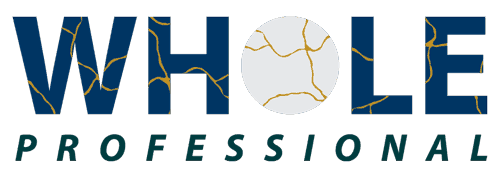When Public Speaking Makes You Anxious
We all know that feeling: you’re standing in front of a room full of people, maybe an auditorium, on a stage, with a microphone. And you flub your speech. Your head starts to buzz. All you can see is the glare of the lights. You not only forget your speech, but also your name.
You’re not alone. Although 70 percent of Americans who speak publicly believe presentation skills are essential to their success, 74 percent of people suffer from anxiety when it’s time to showcase those skills. We’ve all heard the statistic that a majority of people fear public speaking more than they fear death.
If you do get stuck and feel as if you look or sound like Charlie Brown’s teacher, remember that that is your misperception. The truth is that your audience doesn’t want you to fail. Most of them have been in your shoes and they are actually thinking, You’ve got this!
Frankly, a little anxiety isn’t a bad thing. If you’re too sure of yourself, you risk under-preparing and increase the likelihood of that dreadful I don’t know what to say next moment. Now that your anxiety is heightened, listen up: You’ve got this. You can always recover when the inevitable hiccup happens by following these steps.
1. Manage the unexpected.
Technology will inevitably fail you so always prepare a contingency plan. Don’t be one of the 90 percent of speakers who let technical difficulties throw them off their games. For example, when your presentation crashes the system or wasn’t loaded properly, you can say to your audience, “It seems we’re having a technical moment. Please take about five minutes to catch up on your email while we repair this.” When this happens to you, remain composed and unflustered. Don’t freak out and show outward signs of stress. Take your time and, if appropriate, have some fun with it to build a relatable moment. Make a joke about the issue or share a story that relates to your presentation, anything to show that you’re still in control, unflappable, and will proceed, regardless of the circumstances.
2. Break it down.
Your audience knows how to read, so stop relying on your presentation to guide your talk. People are there to listen to you talk, not to watch you read slides. Think about the go-to anchors in your speech in terms of chunks or buckets. This information can be placed in your PowerPoint notes or on note cards. Using large fonts, colors and the underline feature helps you see while scanning and speaking simultaneously, priming your next thought and keeping you on track. If you’re a nervous speaker, adding inspirational words to your note cards helps calm the jitters. Encouraging words are good to look at when you get stuck because they remind you that you really do know what you’re doing.
3. Cut the filler.
This is Public Speaking 101, but it’s worth reiterating: Instead of unconsciously saying, “um,” “uh,” “so,” or any other filler word to help you think, Stop. Take a breath. Have you ever tried to talk while inhaling? It doesn’t work. A pause is not only more credible than stammering, but it also lends an air of gravitas. While some might argue that filler words make you sound more natural, in public speaking, they distract the audience. You want them listening to your message, not counting how many times you say “uh.”
Finally, always maintain control of your voice. Sometimes, when we get nervous, our voices shake and catch in our throats because we’re breathing shallowly. Taking a really deep breath in and then exhaling from your belly while you check your note cards helps calm your parasympathetic nervous system. Your mouth has likely gone dry, too, so remember to have water to sip at your lectern.
4. Recover from rambling.
Maybe you are a “word rambler.” When you get nervous, you overtalk, pivot or use too many words to make your point. These are major distractions for your audience as they try to follow, scan, relate and determine what you’re saying. Basically, you’re taking them on a verbal roller coaster ride. When you catch yourself rambling, stop talking and count to three. Consider saying to the audience, “As you can probably see, this topic is a real passion of mine,” “Let me make this simple,” or “My point is,” and then say it succinctly.
Too often, speakers inundate the audience with data, overloading them with facts, and never get to the point. Be cognizant of when you start to ramble, and once you realize it, find a way to tie whatever you’re saying back into your main point. Consider saying you forgot where you were, or engage the audience by asking someone to help you remember by asking, “Where have I taken you?” or “Where was I?” Paradoxically, naming the fact that you’ve become lost builds credibility. You went on a tangent and caught yourself, and the audience will give you a break.
Public speaking can be anxiety-producing. Just remember that glitches happen. You can always bounce back by pausing. Respect the challenge ahead of time, prepare yourself for the worst and use your tools to wow your audience. You’ve got this.
